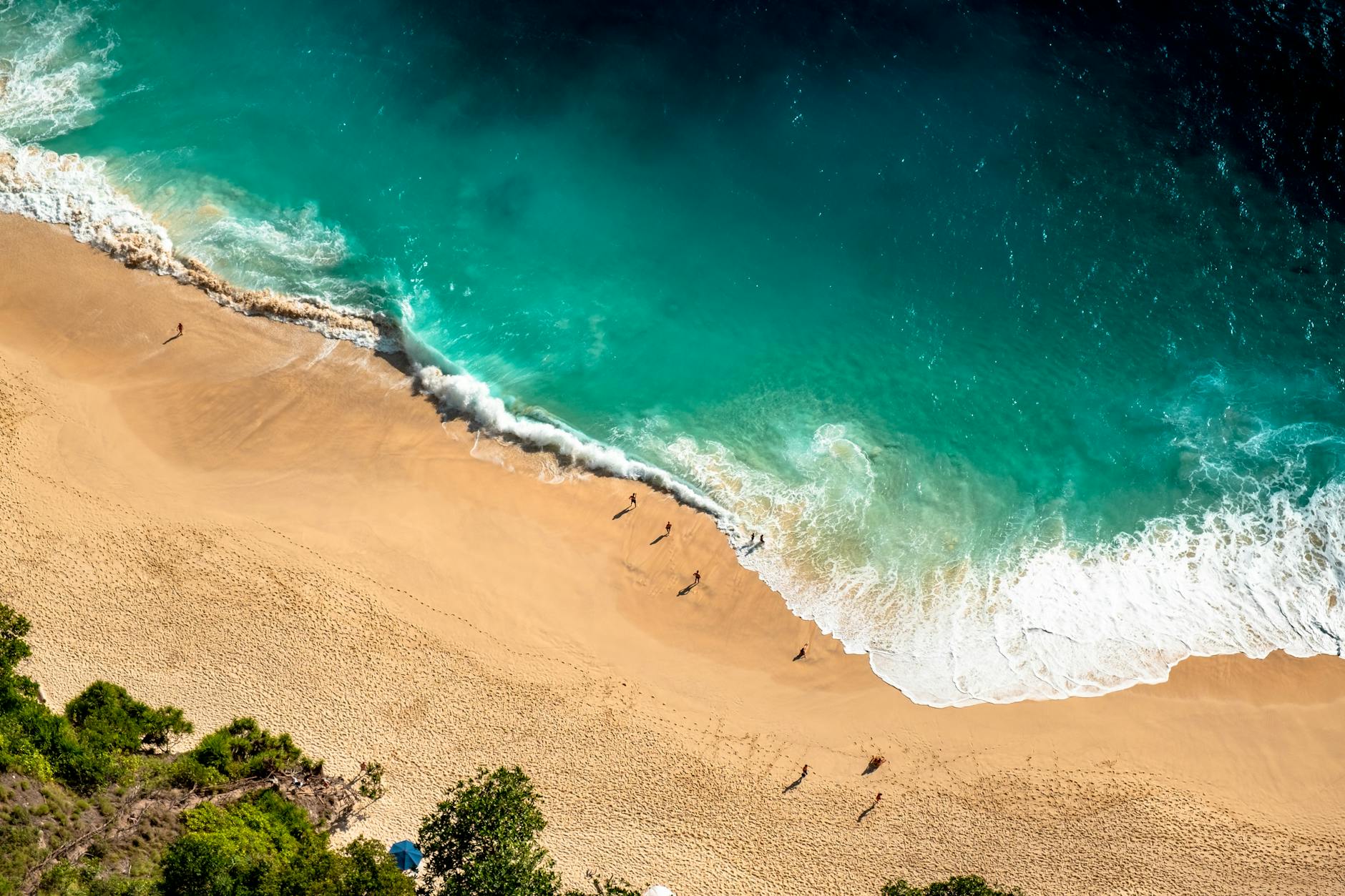How to Plan the Perfect Adventure from Australia without the Hassle

Choosing Your Destination
Highlight Unique Spots
Selecting the perfect destination for your next adventure can feel like a daunting task, especially with the wealth of unique travel spots available globally. For those interested in experiencing an African safari, there's nothing quite like the thrill of observing majestic wildlife in their natural habitats. Picture yourself amidst the vast savannas, watching a pride of lions laze under the African sun. Nothing beats the profound connection to nature you feel during these safaris.
Alternatively, if you're drawn to colder terrains, Antarctica cruises offer a mesmerising escape. Imagine cruising past icebergs, spotting penguins, and experiencing a land where snow and ice form ethereal landscapes. It's a surreal and serene experience unlike any other destination.
South America also boasts an array of breathtaking tours. From the bustling streets of Buenos Aires to the ancient mystique of Machu Picchu, South America tours provide an unparalleled blend of cultural immersion and historical exploration. The Amazon rainforest, with its lush biodiversity, is a must-see for nature enthusiasts.
In Melbourne, don’t forget to take a leisurely day to visit Federation Square. It's a splendid example of how one destination can offer a mix of vibrant culture and relaxation. This, along with memorable sights from your international travels, enriches your retirement with diverse experiences.
Planning the Itinerary
Designing your travel itinerary is a delicate balance, especially for us in our 60s. We want to soak up as much of the destination’s culture and scenery as possible without feeling too rushed or overwhelmed. Here are some tips to make the most of your itinerary planning.
Ideal Trip Length
When considering how long to stay, think about the key activities and their pace. For Machu Picchu tours, for instance, a longer stay may be beneficial to properly acclimate to the high altitude. On the other hand, for Africa tours featuring safaris, a week might allow you to experience wildlife thoroughly without fatigue. A balanced approach ensures you have enough time to thoroughly enjoy without pushing your limits.
Must-See Attractions
Identifying must-see attractions is pivotal. Tailor your list to your interests. For example, in Melbourne, Flinders Street Station is a landmark dripping with history and a must-see for those fascinated by architecture. Plan visits to iconic sites, but also leave room for serendipitous discoveries that usually make trips memorable. For nature lovers, highlight the Melbourne Zoo’s Butterfly House or the lush landscapes you might encounter on a safari in Africa.
Balanced Daily Schedules
Avoid cramming too many activities into a single day to maintain energy and health. Aim for a balanced itinerary, mixing in high-energy activities with periods of rest. For example, start your day with exploring a bustling landmark like Federation Square, then unwind at a nearby café for a leisurely 'arvo'. On an Africa tour, follow a thrilling morning safari with a relaxed afternoon under the shade, observing the savannah.
A well-planned itinerary that accommodates your interests and pace ensures a fulfilling travel experience.
Booking Your Travel
Finding the Best Flights
When it comes to booking flights, getting good deals might feel like striking gold. I recommend starting your search a few months ahead of your planned departure. This gives you a better chance to catch early-bird deals and discounts. Also, consider flying mid-week; flights are often cheaper on Tuesdays and Wednesdays. If your travel plans are flexible, you'll have more options for saving money.
Accommodation Options
Finding the right place to stay is crucial for a comfortable travel experience. For an unforgettable journey, choosing accommodations that suit your needs and preferences is vital. Are you after the scenic serenity of a beachfront hotel, or would you prefer the local flavour of a quaint Bed & Breakfast? Many retirees enjoy staying in self-catering apartments, giving them the freedom to prepare their meals. Always read the reviews—what worked for others might work for you too.
Transport Within Destination
Navigating your destination can make all the difference in how enjoyable your trip is. In bustling cities, public transport is often efficient and affordable. For example, when exploring Melbourne, the trams provide a convenient and authentic experience. Some destinations might offer more specialised tours; if you're planning an African tours, hiring a local guide with a private vehicle ensures you don't miss out on hidden gems. For island adventures like a Galapagos cruise, most tour packages already include inter-island transfers, making your journey smooth and hassle-free.
Booking your travel involves a bit of research and planning but ensures that every leg of your journey is as stress-free and enjoyable as possible.
Preparing for the Trip
Essential Packing Tips
Packing smart is crucial for a successful trip, especially when you're heading on an Africa safari or one of the exhilarating South American tours. Begin with a comprehensive packing list, focusing on necessities and light, versatile clothing.
-
Traveller’s Essentials:
- Comfortable walking shoes
- Lightweight, weather-appropriate attire
- Layering options to adjust to varying climates
-
Safari Gear:
- Neutral-coloured, breathable clothing
- A hat and sunscreen for sun protection
- Binoculars for wildlife viewing
-
South American Adventures:
- Mosquito repellent
- Rain gear if heading to rainforest areas
- Swimwear for beaches and natural springs
Assess your itinerary and tailor your packing to your activities to ensure you’re well-prepared.
Health and Mobility Needs
Travelling as a retiree requires a bit more planning to accommodate health and mobility needs. Schedule a check-up with your doctor well before departure to discuss any necessary vaccinations, medications, and health precautions.
-
Medication Management:
- Carry medications in their original packaging with clear labels.
- Ensure you have enough supply for the entire trip with some extra.
- Bring a list of your prescriptions and a doctor’s note in case of emergencies.
-
Mobility Assistance:
- Consider lightweight, collapsible mobility aids if needed.
- Request assistance in advance for flights and hotels.
- Verify the accessibility of important locations in your itinerary.
Important Documentation
Ensuring you have all necessary documents in order is essential for smooth travel. Keep both physical and digital copies of essential travel documents, and organise them in a secure yet accessible part of your carry-on.
-
Essential Travel Documents:
- Passport and visas
- Travel insurance details
- Medical information and prescriptions
-
Backup Copies:
- Store digital copies on a secure cloud service
- Keep extra physical copies in your suitcase
Organising these elements will ensure a more carefree and enjoyable travel experience. Remember, thoughtful preparation will pave the way for delightful adventures, whether you are exploring new cultures on South American tours or marvelling at the wildlife on an Africa safari.
Best Practices
Staying Connected
Staying in touch with family and friends while on the go is crucial, especially for retirees. Consider purchasing a local SIM card to avoid excessive roaming charges. Also, many places, including cafes around Federation Square, offer free Wi-Fi. So, you can easily check emails or share photos of your latest adventures.
Local Etiquette and Customs
Understanding local customs can enhance your travel experience. In Australia, friendliness and politeness are the norms. A simple 'G'day' can go a long way in building rapport with locals. When visiting places like Melbourne Zoo, be mindful of wildlife and follow the guidelines set by the park authorities. Respect local heritage and traditions, especially at culturally significant sites like Flinders Street Station.
Managing Unexpected Issues
Travel can be unpredictable, so having a contingency plan is essential. Keep copies of important documents such as your passport, travel insurance, and medical prescriptions. If you find yourself in a tight spot, asking for help from locals is generally well-received, given Australians’ reputation for friendliness. Also, Australia has an excellent healthcare system, so if medical issues arise, you are in good hands.
By considering these best practices, your travels around Melbourne and beyond will be more enjoyable and less stressful. Embrace every moment, knowing you’re well-prepared to handle whatever comes your way. Safe travels, mate!


